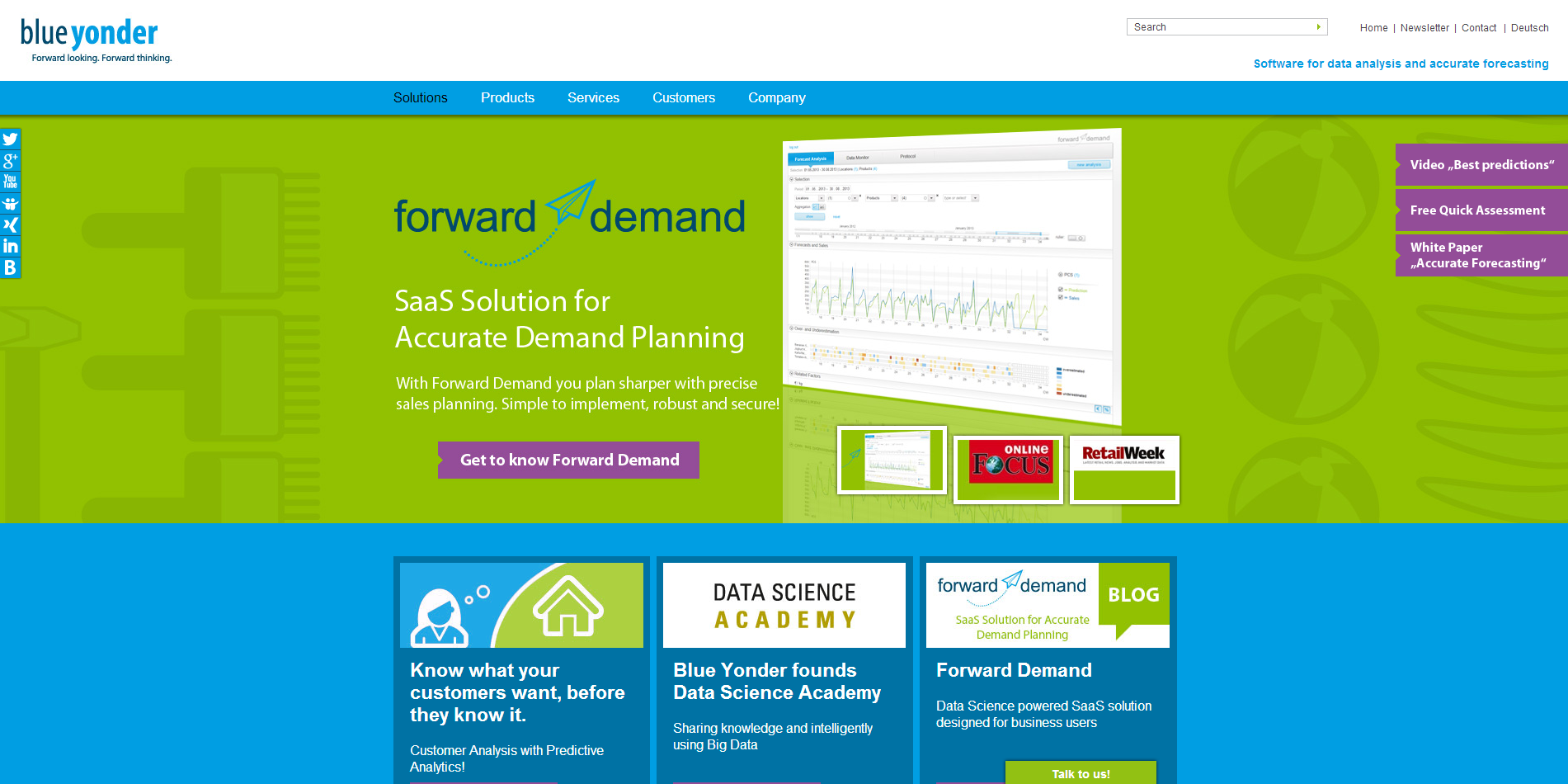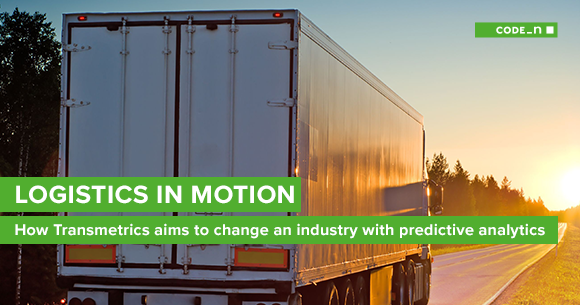Ralf Werneth (Blue Yonder): "with predictive analytics collected data becomes meaningful"
In today’s interview, we are talking to Ralf Werneth, Senior Sales Manager at Blue Yonder. The company was founded in 2008 and has become the leading software provider for predictive analytics in Europe.
Janina Benz: Could you briefly tell us what exactly “predictive analytics” means and about the software’s origins in the field of elementary particle physics?
Ralf Werneth: Predictive analytics means generating substantiated prognoses on a range of issues, such as item turnover, customer behavior or risk management. For this, we have to use a company’s existing big data, or historical data. Depending on the topic at hand, these data can also be combined with external factors like the weather, for example. The “forecasts” are then generated in real time and can be implemented in any areas – all to the company’s advantage.
Our solution is based on knowledge from elementary particle physics, and our Blue Yonder development team is composed of physicists and computer scientists from renowned research institutes like CERN (The European Organization for Nuclear Physics). In fact, CERN particle accelerators analyze petabyte range data in seconds using software from Blue Yonder. As a machine learning solution, the Blue Yonder Predictive Analytics Suite can determine complete probability distributions. As such, the prognosis quality is far superior to that of conventional methods.
JB: Looking at your reference projects, one notices a clear dominance of e-commerce retailers. What role does big data play in online commerce, and how can your system help?
RW: Big data plays a significant role in all areas and industries – and its significance is increasing. The fact that this is more pronounced in online commerce is due to how open this particular industry was to the benefits of big data early on. It can also be attributed to the vast amounts of data that arise from transactions, cursor movements and user behavior. This wealth of information benefits both the e-commerce portal and the user. Our software opens up a variety of application options – especially in e-commerce. This can range from sinking returns quotas, precise profit forecasts and dynamic pricing to determining the likelihood of purchase and how to address individual customers. The results are clearly measurable and have a direct impact on profits.
 JB: With big data, the findings are in the foreground instead of the analyzed data. What does this mean for internal business processes?
JB: With big data, the findings are in the foreground instead of the analyzed data. What does this mean for internal business processes?
RW: Companies today are being overwhelmed by huge volumes of data – for example through transactions or machine sensors. This information is collected, but is of no value on its own. The benefits come once it has been processed with the right software. Collected data only becomes meaningful when it offers insights on a defined objective or issue – and this can change depending on what is trying to be achieved.
JB: What role does the cloud play? It seems to be a precarious topic since it can affect a large volume of customer data. How do most of your key customers deal with this issue?
RW: Nowadays, businesses want to be able to calculate clearly and get a good overview of costs. Because of this, flexible models that can be used to quickly calculate investments are in high demand. Blue Yonder can be implemented without huge technical hassle as an SaaS (software as a service), and a certified data processing center is available around the clock to provide all levels of security as well as customer service. Of course, we have some larger customers who prefer working on their own servers.
JB: Big data is an absolute megatrend. With this year’s CODE_n, we are looking for the most innovative startups with business models that tackle intelligent and efficient use of large data volumes. What sector appears to be cultivating the most business models in this area at the moment?
RW: A study by the Fraunhofer Institute revealed similarities in the way businesses across a variety of sectors perceive the prospects for big data. This implies huge potential for identifying strategies to improve efficiency and business leadership through big data in all industries, not just a select few. In the long term, the discussion in every industry has been focusing on mass customization of services and, increasingly, on intelligent products – ones that can profit from big data and its consequent need for analysis. This points to many new areas of application in the future as well as new opportunities for startups – especially with so-called intelligent products.
Big data is a global megatrend that marks a new era in information handling. That’s why we launched this year’s CODE_n14 Contest under the motto “Driving the Data Revolution”. We are searching for groundbreaking innovations and applications that help take advantage of the enormous potential of big data in different industries such as finance, health, automotive engineering, manufacturing, telecommunications and retail.






Write a comment